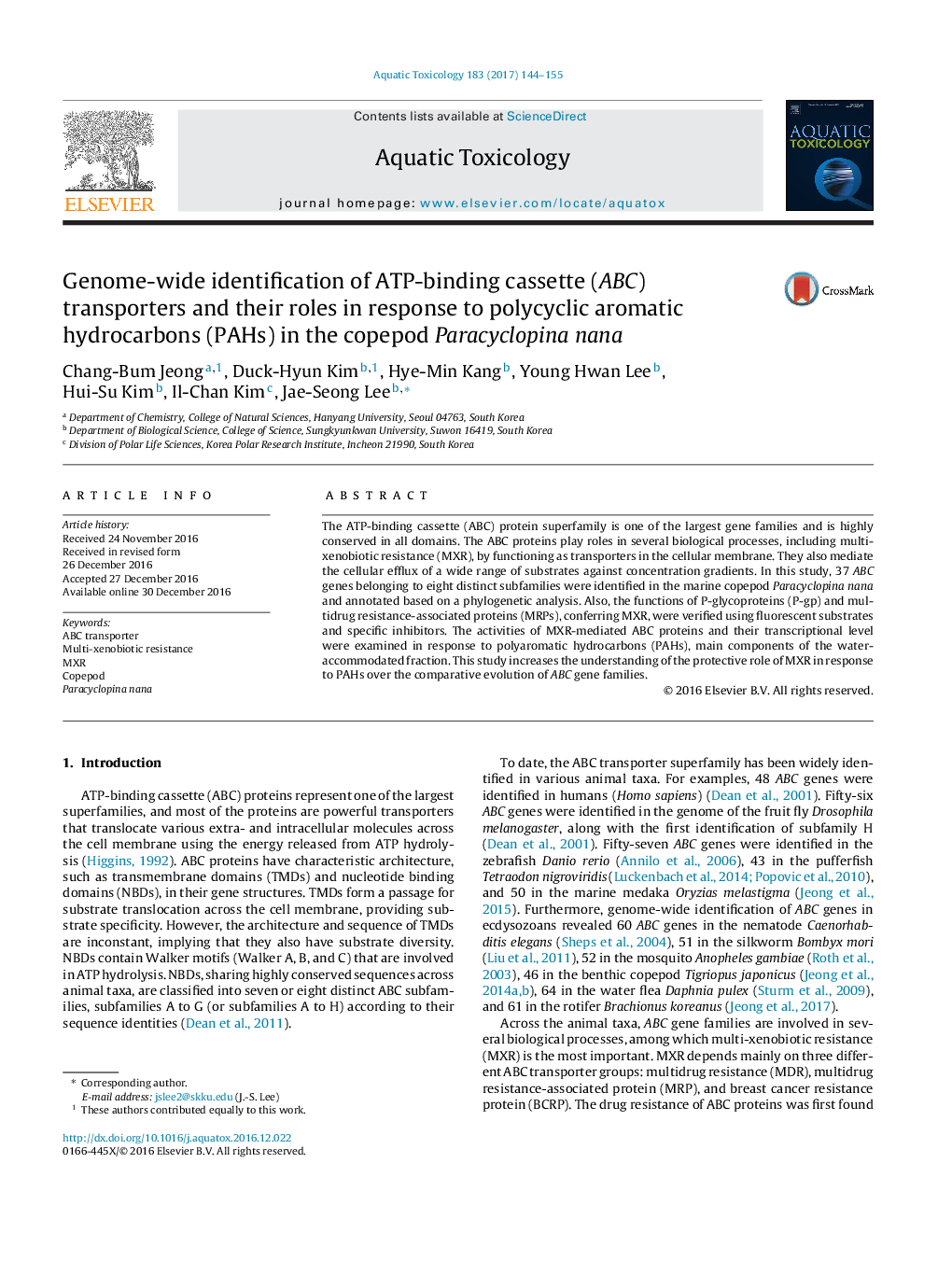| Article ID | Journal | Published Year | Pages | File Type |
|---|---|---|---|---|
| 5764210 | Aquatic Toxicology | 2017 | 12 Pages |
â¢Thirty-seven ABC transporters genes have identified in the genome of the copepod Paracyclopina nana.â¢Gene duplication of MRPs has been revealed in the genome.â¢The conserved protective function of P-gp and MRPs has been examined in response to PAHs in the copepod P. nana.
The ATP-binding cassette (ABC) protein superfamily is one of the largest gene families and is highly conserved in all domains. The ABC proteins play roles in several biological processes, including multi-xenobiotic resistance (MXR), by functioning as transporters in the cellular membrane. They also mediate the cellular efflux of a wide range of substrates against concentration gradients. In this study, 37 ABC genes belonging to eight distinct subfamilies were identified in the marine copepod Paracyclopina nana and annotated based on a phylogenetic analysis. Also, the functions of P-glycoproteins (P-gp) and multidrug resistance-associated proteins (MRPs), conferring MXR, were verified using fluorescent substrates and specific inhibitors. The activities of MXR-mediated ABC proteins and their transcriptional level were examined in response to polyaromatic hydrocarbons (PAHs), main components of the water-accommodated fraction. This study increases the understanding of the protective role of MXR in response to PAHs over the comparative evolution of ABC gene families.
